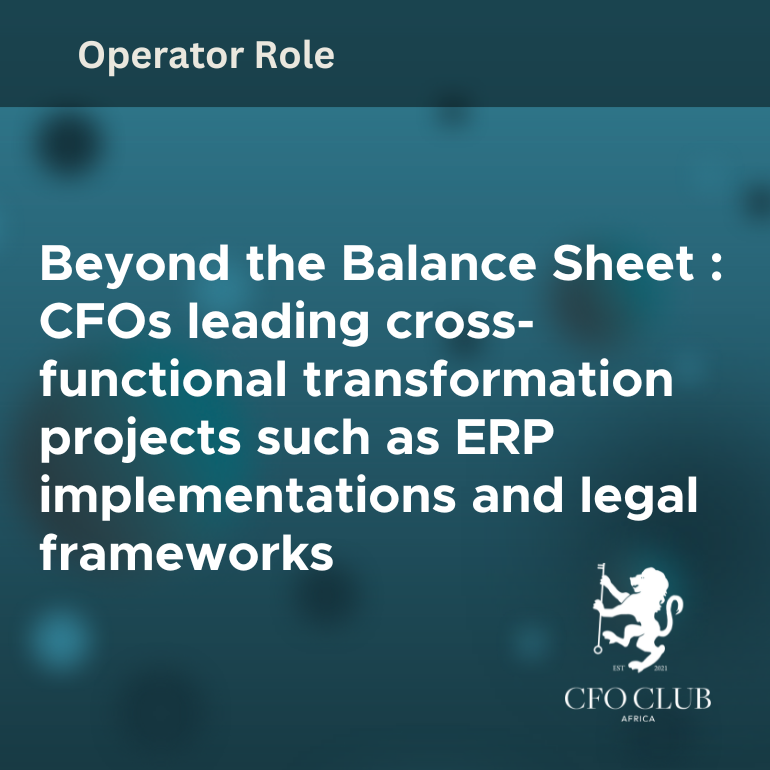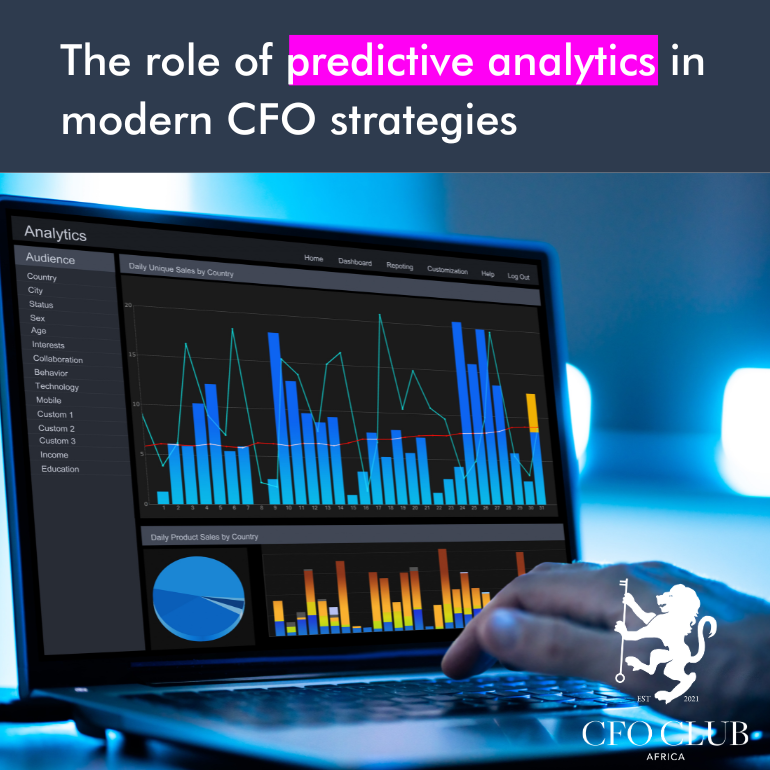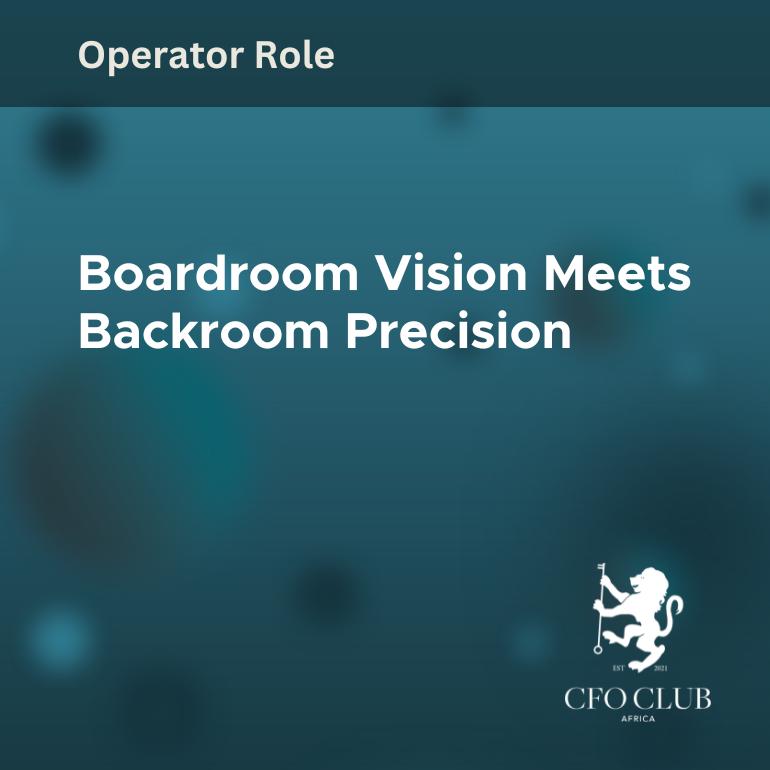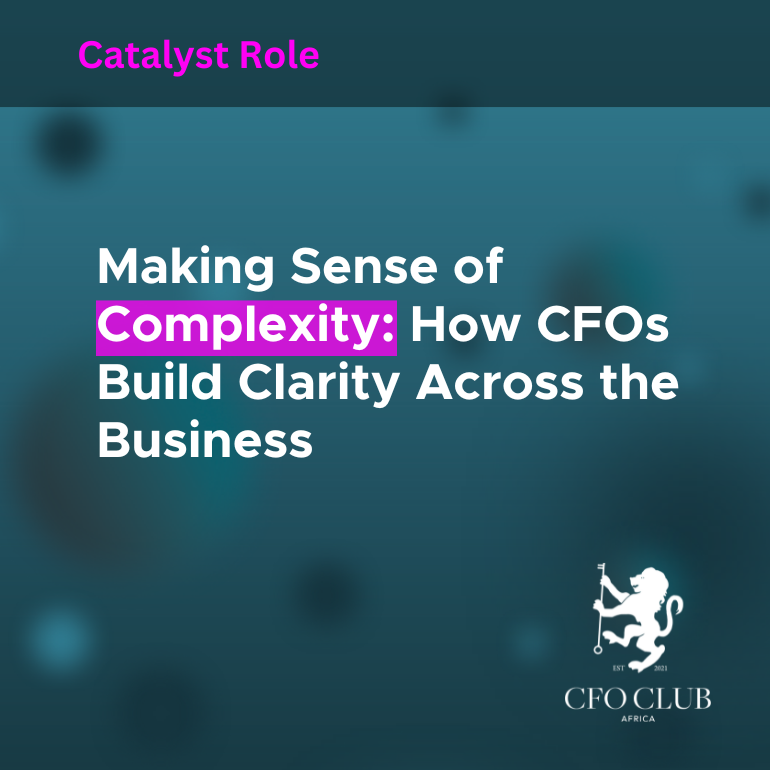Beyond the Balance Sheet : CFOs leading cross-functional transformation projects such as ERP implementations and legal frameworks
A business can invest in the best technology available, employ highly skilled people, and still struggle if its transformation projects are not led with clarity and discipline. Behind every successful shift, whether it is a new enterprise system, a regulatory framework, or a compliance overhaul, there is usually one person ensuring that the pieces fit together: the Chief Financial Officer.
This role has always required precision and accountability. What is changing is the scope of responsibility. The CFO is no longer focused only on financial reporting. Increasingly, the responsibility extends to guiding projects that reshape how information flows across the organisation, how departments work together, and how companies remain resilient in an environment that constantly changes.
Why the CFO is the one holding the reins
Unlike other executives, the CFO sits at the centre of operations, strategy, and risk. The finance function touches every part of the business, from procurement and sales to HR and IT. This unique position makes the CFO the natural choice to steer projects that depend on cross-functional collaboration.
When an ERP system is introduced, it is not simply a technology upgrade. It affects how decisions are made, how costs are managed, and how customer needs are served. The same is true when implementing legal and compliance frameworks. These are not administrative exercises. They are projects that protect the business, build trust with stakeholders, and secure long-term growth. With both, the CFO provides the balance between financial discipline, operational alignment, and business value.
ERP implementations: more than just software
ERP projects often fail to meet expectations because they are treated as IT initiatives rather than business-wide transformations.
The CFO approaches these projects differently. Instead of focusing only on system specifications, they define success in terms of business outcomes. These outcomes include faster reporting cycles, improved visibility of working capital, smoother supplier integration, and stronger internal controls. When these goals drive the project, every decision about configuration, data migration, and training connects back to measurable results.
Equally important is the human element. An ERP system changes the daily routines of employees across departments. It requires reassurance, patience, and clear communication. By recognising and addressing the human side of transformation, the CFO helps build support and ownership that technology alone cannot achieve.
Legal and compliance frameworks: unseen but essential
ERP projects often make headlines within organisations, but compliance frameworks usually operate more quietly. Their impact, however, can be even more significant. A gap in compliance can result in reputational damage, financial penalties, and even the collapse of a business.
CFOs in South Africa are acutely aware of this risk. They must navigate a complex environment that includes the Companies Act, IFRS standards, King IV, POPIA, and various tax laws. Globally, similar challenges exist with sustainability disclosures, data protection requirements, and anti-money laundering regulations. Each of these frameworks requires not only technical accuracy but also a strong understanding of how compliance supports trust, value, and reputation.
By leading these projects, CFOs ensure that compliance is not treated as a last-minute exercise. Instead, it becomes part of the organisation’s operating structure. This leadership also demonstrates to boards, regulators, investors, and customers that the business values transparency, accountability, and integrity.
The skills that turn projects into success stories
Technical knowledge is important, but it does not guarantee successful transformation. CFOs who excel in these projects draw on a broader range of skills:
- Communication. Explaining complex changes in a way that everyone can understand, from frontline employees to board members.
- Collaboration. Working across departments to align goals and reduce resistance.
- Change management. Addressing people’s concerns, building confidence, and managing the cultural side of transformation.
- Strategic vision. Keeping projects focused on long-term value instead of short-term fixes.
These skills are not optional. They are essential if a transformation project is to deliver the promised benefits and embed lasting change.
What practice is teaching us
Experience from successful projects highlights a few consistent lessons.
1. Start with business objectives. Both ERP and compliance projects must begin with clear goals such as faster reporting or stronger governance.
2. Data is the foundation. Without reliable data, systems and frameworks will not deliver their full value. CFOs must set the standard for data integrity.
3. Bring people in early. Early involvement prevents resistance and creates a sense of ownership.
4. Celebrate milestones. Large projects take time. Recognising and celebrating smaller successes helps maintain momentum.
The evolving picture of leadership
Transformation has become a constant feature of business life. Companies need leaders who can hold together the financial, operational, and strategic elements of these projects. That is why CFOs are increasingly asked to lead them.
Their responsibilities now go far beyond financial control. They balance efficiency with innovation, compliance with agility, and cost control with growth. In this balancing act, the ability to guide cross-functional transformation is becoming one of the most valuable contributions a CFO can make.
South African organisations face unique challenges in regulation, technology, and economic conditions. Internationally, the same themes play out in different ways. Across industries and borders, CFOs are proving that their role extends beyond financial reporting. They are becoming the architects of transformation, trusted to design the systems, frameworks, and culture that will define the future of their organisations.





